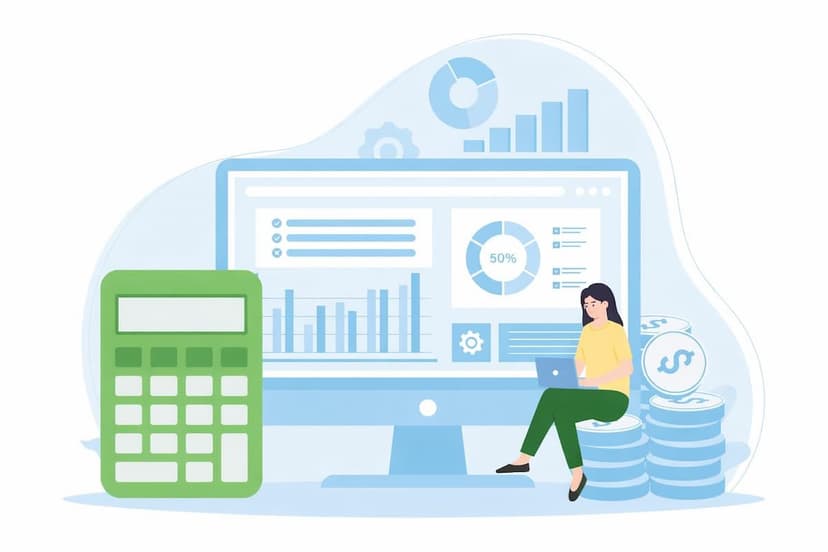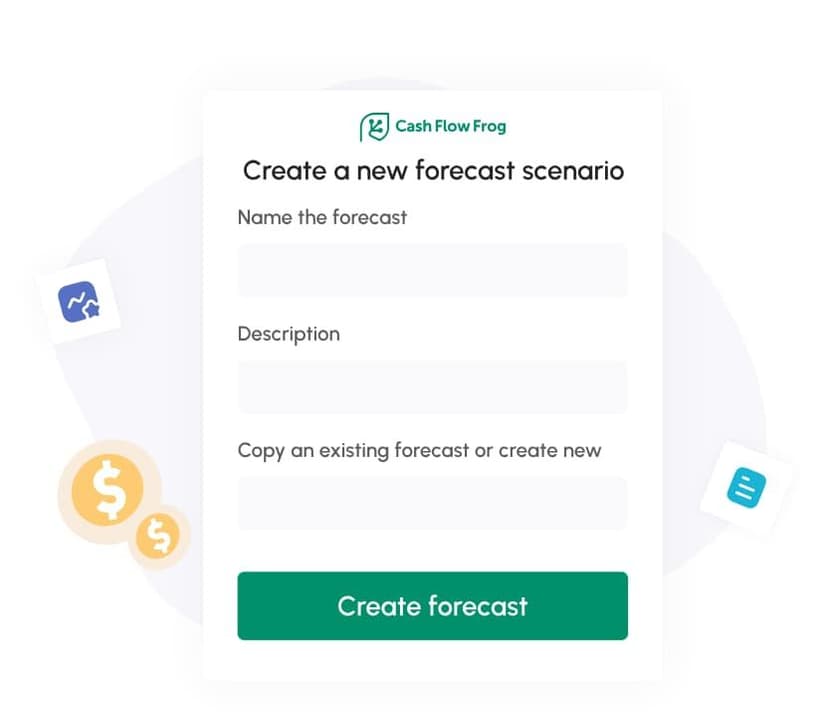Why is cash flow important for small businesses?

Cash flow for small businesses is crucial to your long-term success. Managing small business cash flow empowers you to:
- Maintain enough cash to pay bills
- Avoid taking out loans
- Remain financially healthy
In this guide, we’re going to outline the importance of cash flow for small businesses, tips to improve cash flow and more.
What Is Cash Flow?
If you’re new to business or the accounting side of things, cash flow for small businesses is simply the amount of cash coming in and out of the business, impacting liquidity.
What does cash flow mean in business?
It's:
- All cash coming into the business
- All cash going out of the business
- Incoming – outgoing = net cash balance
Cash flow management for small businesses is important because liquidity will impact decisions. For example, if an SMB has $100,000 in cash sitting around, they can use some of it to:
- Market products
- Expand operations
- Hire employees
- Etc.
However, if a business starts spending money it doesn’t have, it can lead to negative cash flow. Covering short flows means having to secure some form of financing or missing debt payments. Businesses that cannot pay their bills may experience high interest rate charges on missed payments, lost contracts and more.
But cash flow for small businesses can also be forecasted, and these forecasts are equally important.
Why Is It Important to Forecast Your Cash Flow, Especially in a Small Business?
Cash flow for small businesses isn’t a one-off calculation. For example, many businesses will run a cash flow statement at the end of their quarter. Why? They want to have a general idea of how much liquidity they have.
However, small businesses must do more to control their cash flow.
Cash flow forecasts can be run for a business to:
- Understand what cash flow is likely to be at the end of the day, week, month – any timespan
- Create what-if scenarios to see what cash flow may be based on changing certain parameters
- More.
Small businesses run on low cash flow, and when they’re just starting out, they often “live sale-to-sale.” In fact, the reason that one-in-three businesses fail within the first two years of operation is that they don’t have enough cash.
Poor cash flow management for small businesses is just as concerning as not having enough cash flow.
Why do small businesses fail?
- Financial hurdles are the main issue, and this means lacking funding and/or working capital. Without cash flow from operations or funding to make up for the lack of cash flow, the company will not be able to pay overhead, such as utilities, payroll, rent or other financial obligations.
- Management is another issue, and this can include not managing cash flow properly, but it may also include not having the right team in place to grow the company from a budding startup to a profitable venture.
Of course, there are other reasons businesses fail, but most will go back to a lack of cash flow. Without liquidity to pay off debts, workers or for materials, every business fails. Running cash flow forecasts allows businesses to have an idea of where their cash position will be at the end of a timespan to make changes to help the business thrive.
How Can Managing Your Cash Flow Help Your Business?
Cash flow for small businesses requires proper management. If you work to manage your cash properly, you can often increase cash flow. A few of the ways managing cash flow can help a business include:
- Creating a financial cushion for slow periods
- Reducing the risk of accumulating debt
- Helping business owners make smarter decisions
If you need additional cash flow help for small businesses, the tips below will help you make smarter choices with your cash.
How To Improve Cash Flow in a Small Business?
You can work to improve cash flow for small businesses, too. The tips below will help you begin increasing your cash flow even if you don’t have any additional inflows coming into the business.
Invest in Bookkeeping
Bookkeeping is a fast way to routinely manage your business’s financial transactions. You'll need to have strong bookkeeping to work through the following steps.
Run Cash Flow Statements
Managing your cash flow means knowing where your business stands financially. This means that you need to:
- Create cash flow statements
You’ll then use this statement in the next point.
Analyze Cash Flow
Analyzing your statements is the next step in your management process. You want to know:
- What cash is coming in
- What cash is going out
- Where cash flow bottlenecks occur
Once you analyze statements and understand where money is going in and out of your bank account, you can then start to take action – if necessary.
Take Action If You Need More Cash Flow
If cash flow is negative or low, you’ll want to find ways to improve cash. You can do a few things to boost your cash:
- Increase prices to help boost profit margins
- Ask customers to pay invoices faster
- Seek financing if you don’t have the cash to keep operations running
Cash flow is always going to be the most important factor in keeping your business running smoothly. If some customers pay invoices late and they continue to do so, this will negatively affect cash flow.
Work through these issues by potentially “firing” clients or negotiating terms to force faster payment terms on clients.
Reduce Expenditures
Positive cash inflows are always going to help a business increase cash flow. However, outflows (expenditures) are always going to reduce your net cash flow. One way to help your liquidity is: reduce expenses.
One way to reduce your expenses is to:
- Work through your books to find expenses
- Review expenses to find areas to cut back on
- Find methods to reduce or eliminate these expenses
You can opt to negotiate contracts to be in your business’s favor, possibly reducing costs by agreeing to buy in bulk. You may also need to cut back on your workforce or consolidate loans.
Small Business Cash Flow Tips
The following tips for cash flow for small businesses can help you keep more money in the bank and improve cash:
- Negotiate bulk discounts with suppliers or switch suppliers to save money
- Put late payment clauses in your invoices so that if you’re paid late, it works in your favor
- Discuss extending payment terms with your suppliers to keep more cash available in your business
- Analyze your clients and stop working with the ones that are not upholding standard payment terms
- Continually watch your outflows and try to find ways to reduce expenses while keeping operations unharmed
- Lease equipment that you cannot afford to pay upfront
- Create systems to send invoices to clients as early as possible
- Borrow money when necessary and try securing a revolving line of credit when possible
The tips above will offer you an easy, fast way to get your cash flow under control.
How Do You Choose The Best Cash Flow Software For You?
Choosing software to help you manage cash flow for small businesses can be challenging. With so many options available, it can be difficult to choose the right software. The following recommendations will help you choose appropriate software from the start:
- Integration with existing accounting and bookkeeping software is crucial to your ease of use. The best software will connect with the other applications you use so that it can rapidly gather the information you need to run cash flow.
- Forecasts are also important. Find software that will run current cash flow and also help with forecasting future cash flow. The forecast will allow you to have a better idea of where your liquidity will be at the end of a pre-defined period.
- What-if scenarios are a nice addition to cash flow software because you can adjust specific parameters to determine: if this happens, the result to my cash flow will be this.
- Reporting should also be something to think about if you’re an accountant and not the business owner. Reporting options allow you to easily generate reports that you can show to business stakeholders.
Of course, when choosing the platform that you’ll trust for your cash flow needs, you also want to use an app that has a neat interface and good customer service. The customer service agents should be helpful and willing to answer all of your questions.
If customer service is unresponsive, they won’t be there to help if you have any major issues with their solution.
Ready To Make Money With Cash Flow Frog - The Best Cash Flow Forecasting Software For Small Business
Cash flow for small businesses has never been easier than it is with Cash Flow Frog. We help you make sense of your cash flow with a revolutionary platform that will rapidly help you:
- Create a small business cash flow statement
- Improve cash flow for small business
- Gain customer insight
- Forecast cash flow
- Run what-if scenarios
You can even connect your accounting software and data with the best cash flow forecasting software for small business to make generating cash flow fast and easy.
And you can begin using our platform for yourself for free.

How to Calculate Free Cash Flow (FCF): Formulas + Real Examples
Read more

The 3 Types of Cash Flow: What They Mean and Why They Matter
Read more

Cash Flow Forecasting Template
Read more

Your Guide To Financial Metrics And KPIs
Read more

10 Cash Management Trends for 2026
Read more

10 Best Cash Flow Business Ideas: Build Income That Counts
Read more
FAQ
Trusted by thousands of business owners
Start Free Trial Now